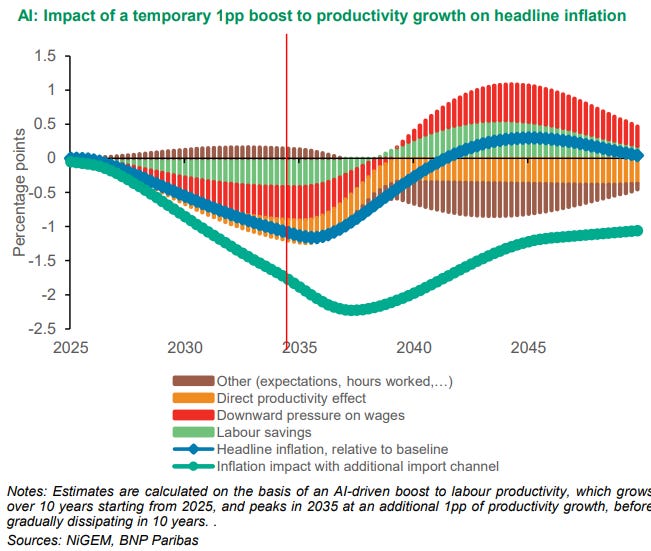
Navigating Inflationary Forces: Economic Impact and Strategies
Inflationary forces can significantly impact economies, influencing everything from consumer behavior to government policies. This article explores the multifaceted effects of inflation and strategies to navigate its impact on individuals, businesses, and governments.
Understanding Inflationary Forces: A Complex Economic Phenomenon
Inflation, at its core, is the rise in the general price level of goods and services in an economy over time. This complex economic phenomenon can be influenced by a variety of factors, including increased demand, supply chain disruptions, and monetary policy decisions. Understanding the drivers of inflation is essential for comprehending its impact.
Consumer Impact: Purchasing Power Erosion and Behavior Changes
One of the most immediate impacts of inflation is the erosion of purchasing power for consumers. As prices rise, each unit of currency buys less than before, leading to a reduction in the standard of living. This can prompt changes in consumer behavior, with individuals prioritizing essential purchases and altering spending patterns to cope with decreased affordability.
Business Operations: Cost Pressures and Pricing Strategies
Inflation exerts pressure on businesses through increased costs of production, raw materials, and labor. To maintain profitability, businesses may resort to price increases, impacting consumers and potentially leading to changes in market dynamics. Crafting effective pricing strategies becomes crucial for businesses to navigate the challenges posed by inflationary forces.
Investment Strategies: Navigating Real Returns and Asset Allocation
Investors face unique challenges during inflationary periods. Traditional investments like bonds may struggle to provide real returns after accounting for inflation. As a result, investors often turn to alternative assets such as real estate and commodities that have historically acted as hedges against inflation. Crafting a well-diversified investment portfolio becomes essential to navigate the uncertainties of inflation.
Interest Rates and Central Bank Policies: Balancing Act
Central banks play a pivotal role in managing inflation through interest rate policies. Higher interest rates can be employed to cool inflation by reducing borrowing and spending, while lower rates stimulate economic activity. The delicate balancing act of central banks requires a keen understanding of economic indicators and a proactive approach to ensure stable economic conditions.
Real Estate Dynamics: Investment Opportunities and Affordability Concerns
Real estate is both impacted by and impacts inflationary forces. While real estate can serve as an inflation hedge due to its tangible nature and potential for appreciation, rising home prices may lead to affordability concerns. Navigating the dynamics of the real estate market requires a nuanced understanding of local trends and broader economic conditions.
Government Responses: Fiscal Policies and Inflation Management
Governments employ various fiscal policies to manage inflation. Adjusting tax rates, government spending, and implementing structural reforms are common strategies. These measures aim to strike a balance between economic growth and stability. Effective government responses are critical to mitigating the adverse effects of inflation on both individuals and businesses.
Global Perspectives: Exchange Rates and Trade Dynamics
Inflationary forces are not confined to individual economies; they have global repercussions. Changes in exchange rates, trade imbalances, and international competitiveness are influenced by inflation. Global economic interconnectivity requires nations to navigate inflationary forces collectively, considering the impact on international trade dynamics.
Consumer Behavior Adaptation: Adapting to a Changing Economic Landscape
In response to inflation, consumer behavior undergoes adaptation. Individuals may become more budget-conscious, prioritize savings, and seek out value-driven purchases. Businesses, in turn, must adapt marketing and product strategies to align with changing consumer preferences in the face of inflationary pressures.
Strategies for Navigating Inflation: A Comprehensive Approach
Effectively navigating inflationary forces requires a comprehensive approach. Individuals can focus on building resilient financial plans, diversifying investments, and staying informed about economic trends. Businesses should adopt flexible pricing strategies and operational efficiencies. Governments need to implement prudent fiscal policies, and global collaboration is essential for harmonizing responses to inflation.
Explore More: Inflationary Forces Impact
For a deeper exploration of the impact of inflationary forces on the economy and strategies for navigating these challenges, visit Inflationary Forces Impact. This link provides valuable resources and insights, offering a comprehensive understanding of the dynamics at play and practical approaches to mitigate the impact of inflation on various economic stakeholders. As economies evolve, staying informed and proactive is key to navigating the complex terrain of inflationary forces.




